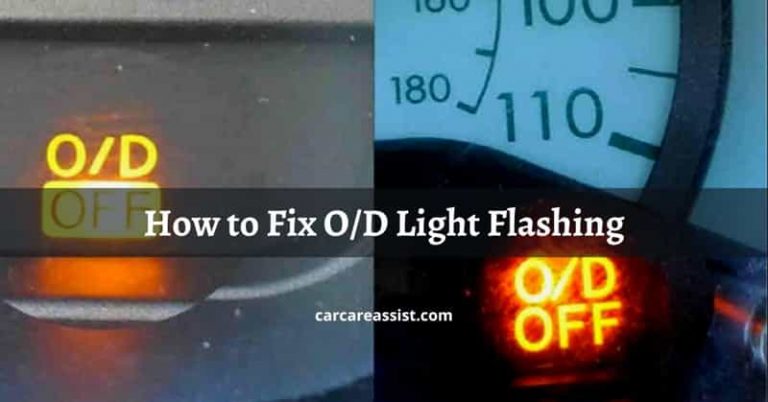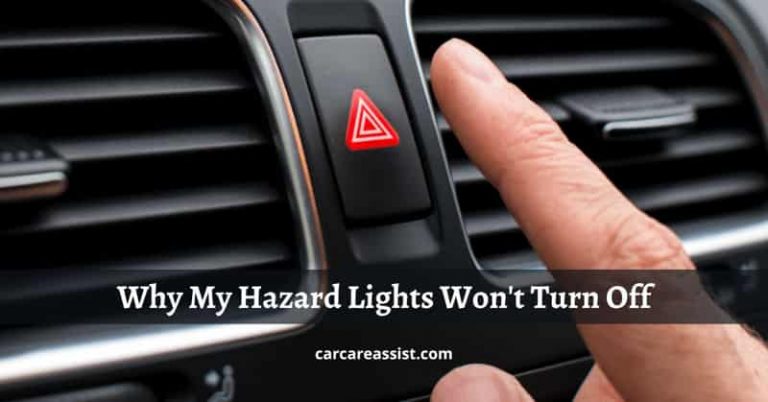Why Is My Alternator Smoking | Alternator Troubleshooting Complete Guide
If you’ve ever been driving down the road and seen a cloud of smoke billowing from under the hood of your car, you may have wondered what was wrong. One likely possibility is that your alternator is smoking. Let’s take a look at what an alternator does, what can cause it to smoke, and how to fix the problem.
By the end of this post, you’ll have a better understanding of what’s happening when your alternator smokes and how to take steps to prevent it from happening again.
What is an Alternator and How Does it Work?
An alternator is a device that generates alternating current (AC) by electromechanical means. It is a type of dynamo. The simplest form of an alternator consists of a rotating magnet (the rotor) that passes through a stationary set of coils (the stator), producing an AC voltage. The output voltage depends on the speed of the rotor and can be used to power electrical devices such as lights or motors.
The alternator is an essential component of a car’s electrical system, providing power to charging the battery and powering the vehicle’s electrical accessories when the engine is running. A smoking alternator can be a sign of a serious problem that needs to be addressed immediately to avoid damaging your car’s electrical system.
What can Cause an Alternator to Smoke?
We all have been in a situation when we discover the alternator and thinking – why is my alternator smoking? There are a few different things that can cause an alternator to smoke. One possibility is that the bearings that support the rotating shaft are worn out. This can cause the shaft to wobble, which puts stress on the electrical windings and can cause them to overheat and smoke.
Another possibility is that the electrical windings inside the alternator are damaged. This can be caused by a manufacturing defect, or by exposure to excessive heat or moisture. Damaged windings can short circuit, causing excessive current to flow through them and resulting in overheating and smoking.
How to Fix a Smoking Alternator
If you have a smoking alternator, it’s important to have it repaired as soon as possible to avoid damaging your car’s electrical system. Depending on the cause of the problem, the repair may be as simple as replacing the bearings or windings, or it may require more extensive work such as rebuilding the entire alternator.
In any case, it’s best to have the problem diagnosed and repaired by a qualified mechanic. They will be able to determine the cause of the problem and make the necessary repairs to fix it.
Smoking alternators are a serious problem that can damage your car’s electrical system. If you see smoke coming from your alternator, be sure to have it checked out by a qualified mechanic as soon as possible. With proper diagnosis and repair, you can prevent further damage and keep your car’s electrical system in good working order.
Symptoms of a Bad Alternator
There are a few different symptoms that can indicate that your alternator is going bad. One is dimming or flickering headlights. This can be caused by a drop in voltage due to a failing alternator.
Another symptom is problems with the electrical accessories in your car, such as the radio or power windows. If these accessories are not working properly, it could be a sign that the alternator is not providing enough power.
Another symptom of a failing alternator is engine stalling. This can happen when the alternator can’t provide enough power to keep the engine running.
If you notice any of these symptoms, it’s important to have your car checked out by a qualified mechanic. They will be able to diagnose the problem and make the necessary repairs.
How to Prevent Alternator Smoking
There are a few things you can do to prevent your alternator from smoking. First, make sure that the bearings are in good condition and properly lubricated. This will help reduce wear on the bearings and keep them from failing.
Second, keep the alternator clean and dry. dirt and moisture can damage the electrical windings and cause them to fail.
Third, make sure that the alternator is not exposed to excessive heat. This can damage the internal components and cause premature failure.
By following these simple tips, you can help prevent your alternator from smoking and keep it in good working condition.
How to Know if your Alternator Needs to be Replaced
There are a few signs that can indicate that your alternator needs to be replaced. One is if it is smoking, as this can be a sign of damage to the internal components.
⚠️ Dimming or flickering headlights.
⚠️ Problems with the electrical accessories in your car.
⚠️ Engine stalling.
⚠️ Making noises.
⚠️ Window glasses closing slowly
⚠️ Seat adjustment taking more time
If you notice any of these symptoms, it’s important to have your car checked out by a qualified mechanic. They will be able to diagnose the problem and make the necessary repairs.
When to Replace your Car’s Alternator
It’s generally recommended that you replace your car’s alternator every 50,000 miles or so. However, this may vary depending on the make and model of your car. Consult your owner’s manual for specific recommendations.
If you notice any of the symptoms of a failing alternator, it’s important to have your car checked out by a qualified mechanic. They will be able to diagnose the problem and make the necessary repairs. In some cases, such as when the alternator is smoking, it may be necessary to replace the entire unit.
How Much Does it Cost to Replace an Alternator?
The cost of replacing an alternator can vary depending on the make and model of your car. In general, you can expect to pay between $200 and $400 for the replacement. However, this may vary depending on the severity of the problem and whether or not any other repairs are necessary.
Factors that can Affect the Life of your Alternator
There are a few factors that can affect the life of your alternator. One is the quality of the unit. Higher-quality alternators will generally last longer than lower-quality ones.
Another factor is how well you maintain your car. Regular maintenance, such as keeping the bearings lubricated and the electrical system clean, can help extend the life of your alternator.
Finally, the environment in which you drive can also affect the life of your alternator. If you frequently drive in dusty or wet conditions, it can shorten the life of the unit.
by following these tips, you can help extend the life of your alternator and keep it in good working condition.
How to Install a New Alternator
If your car’s alternator needs to be replaced, the process is relatively simple. First, disconnect the battery and remove the old alternator. Next, install the new alternator and reconnect the battery. Finally, start the engine and check for proper operation.
If you notice any of the symptoms of a failing alternator, it’s important to have your car checked out by a qualified mechanic. They will be able to diagnose the problem and make the necessary repairs.
FAQs
Q: What are the symptoms of a failing alternator?
A: There are a few signs that can indicate that your alternator needs to be replaced. One is if it is smoking, as this can be a sign of damage to the internal components. Other symptoms include dimming or flickering headlights, problems with the electrical accessories in your car, engine stalling, and making noises.
Q: When should I replace my car’s alternator?
A: It’s generally recommended that you replace your car’s alternator every 50,000 miles or so. However, this may vary depending on the make and model of your car. Consult your owner’s manual for specific recommendations.
Q: How much does it cost to replace an alternator?
A: The cost of replacing an alternator can vary depending on the make and model of your car. In general, you can expect to pay between $200 and $400 for the replacement. However, this may vary depending on the severity of the problem and whether or not any other repairs are necessary.
Q: What factors can affect the life of my alternator?
A: There are a few factors that can affect the life of your alternator. One is the quality of the unit. Higher-quality alternators will generally last longer than lower-quality ones. Another factor is how well you maintain your car. Regular maintenance, such as keeping the bearings lubricated and the electrical system clean, can help extend the life of your alternator.
Q: What is the average voltage of an alternator?
A: Most alternators have an output of between 13 and 14 volts. If the voltage is under 13 volts, it may not be enough to charge the battery. If the voltage is over 14 volts, it can damage the battery.
Q: How can i measure the voltage of an alternator?
A: You can measure the voltage of an alternator with a voltmeter. First, connect the voltmeter to the battery. Then, start the engine and let it idle for a few minutes. The voltmeter should read between 13 and 14 volts. If it doesn’t, there may be a problem with the alternator.
Final Verdict
An alternator is a vital part of your car’s electrical system. It charges the battery and powers the electrical accessories while the engine is running. If it fails, it can cause a number of problems.
If you notice any of the symptoms of a failing alternator, it’s important to have your car checked out by a qualified mechanic. They will be able to diagnose the problem and make the necessary repairs.







